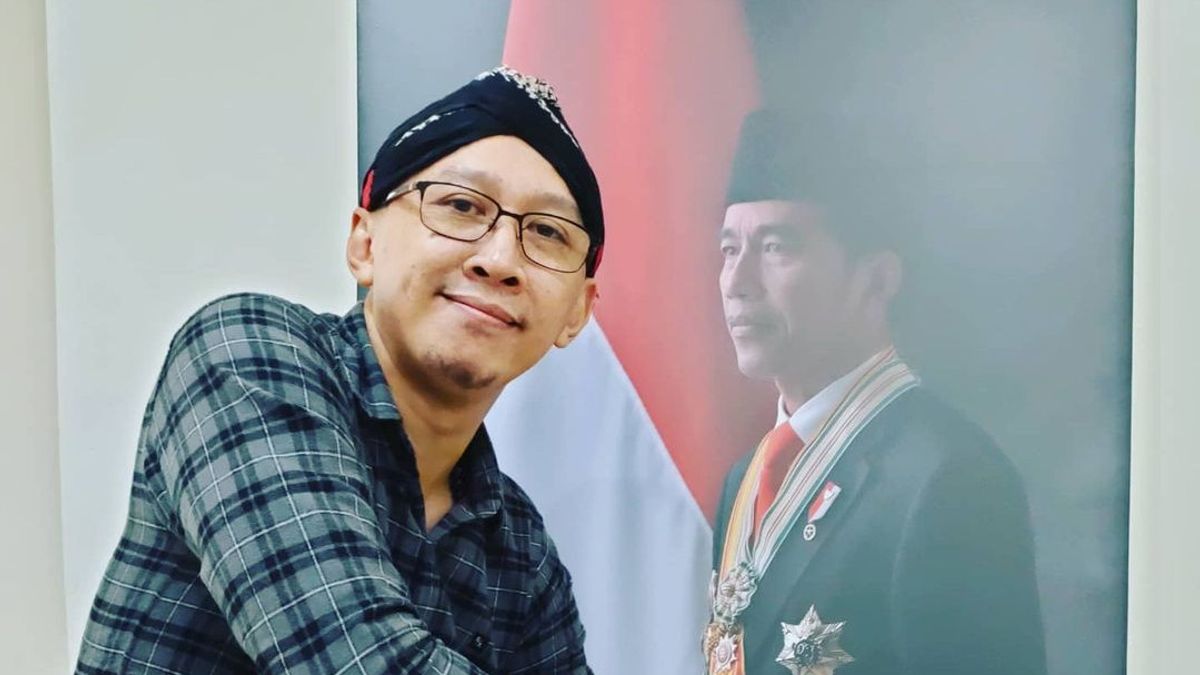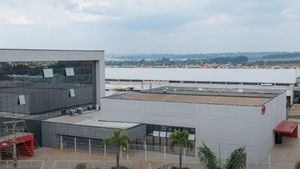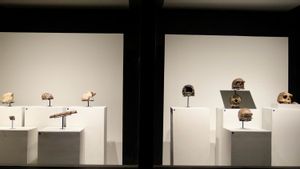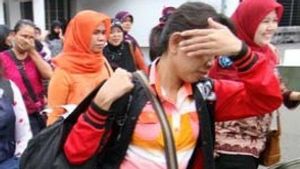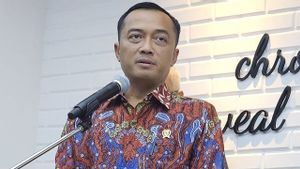JAKARTA - The debate about buzzer or buzzer has started again after social media activist Permadi Arya alias Abu Janda openly admitted to being the buzzer of President Joko Widodo (Jokowi) in the 2019 Presidential Election. There is no real problem with buzzer work, including any promotion of ideas and physical goods in internet media. The important thing is that the buzzers comply with the applicable regulations.
Recently the name Abu Janda has been sticking out after mentioning Islam as arrogant on his Twitter social media accounts. His statement came out when he was answering Ustaz Tengku Zulkarnain's tweet.
Abu Janda's statement became a polemic. Even Abu Janda was in danger of being detained after the Indonesian National Youth Committee (KNPI) reported to the National Police Criminal Investigation Unit.
Not resolved about the issue of arrogant Islam, Abu Janda returned to enliven the public space when he admitted to being Jokowi's buzzer. Through a blunt program that airs in seconds, Abu Janda tells of his origins as Jokowi's buzzer.
Initially, Abu Janda admitted that he was concerned about Jokowi, who was often slandered from the start when he ran for president. Since then he has been diligently defending the patron on social media.
"When going to the 2019 Presidential Election, in 2018 we were recruited by the approach timses (Jokowi's success team). We became one of Jokowi's influencers ... Influencers campaigned. That's all during the presidential election," said Abu Janda.
He admits that he gets a monthly salary from his practice of promoting Jokowi's campaigns. However, he did not want to mention a number. "We know that large funds are needed to advance to be a presidential candidate."
"But it needs to be straightened out, this is after the Presidential Election is dissolved. It's not true to say that until now it has become a buzzer," said Abu Janda.
After the presidential election, Abu Janda admitted that his content which often defended the government was made on a voluntary basis. Regarding the polemic of the Job Creation Law, for example, Abu Janda said he was proud to have made a viral video regarding the explanation of the law made using the omibus law technique.
"Because at that time there was a hoax that said the omnibus law was detrimental to workers. I made a video explaining the articles," said Abu Janda.

In fact, there is no problem with the work done by Abu Janda and other buzzers. Moreover, seeing the hefty pay. But still, terms and conditions apply.
Basically, according to the Head of the Cyber Security and Communication Research Institute (CISSReC) Pratama Pershada, there are only two principles of buzzer, namely those that are paid and those that are not. Those who pay are the ones who can move massively because they can create issues with influential tools and accounts.
"Paid buzzers are neater with the issues they supply and accounts that can measure the extent of attacks through the content they create," Pratama told VOI.
Regarding the limits of buzzer behavior, said Pratama, everything has been regulated in the ITE Law, Criminal Code and other laws. "If it violates the law and can be convicted, it must be enforced."
[/ read_more]
Conditions apply
There are several issues that are important to highlight from buzzers. The first is transparency. Which content is an order from an institution or personal content should need to be separated.
However, because the realm of transparency, according to Pratama, is still uncertain, so there is no obligation that requires a buzzer to tell which order content is not. In contrast to influencers or influencers, it is clear that he posts products from advertoial and endorsement businesses.
"Buzzer is indeed more gray, the way to deliver content is also more flexible. It can even be through ads or social media ad features," said Pratama.
But fortunately, currently Facebook, one of the buzzer tools to boost its orders, has encouraged transparency by including KTP and NPWP for advertisers whose content tends to be socio-political. "So we will see a description of the advertiser along with the sponsored writing," said Pratama.
Next is a matter of argument or statement of the buzzer himself. Again, this area is still gray according to Primary.
In the case of the attack on the issue of the Corruption Protection Commission (KPK) which is considered a hotbed of the Taliban, for example, the Lecturer at the State Intelligence College (STIN) explained that the ringers really wanted to pressure Novel Baswedan's investigator group. "Giving an association of long beard pants in the KPK is synonymous with hardline groups, thereby reducing the relevance of public trust in them."
Then in the case of Abu Janda who called Islam arrogant, former Fisheries Minister Susi Pudjiastuti also received attacks from buzzers by including a photo of Susi with the Governor of DKI Jakarta, Anies Baswedan and the sandalwood family. "The buzzers want the public to have the perception that the business is playing a political issue," said Pratama.
Pratama explained, in principle there is a buzzer's duty to form public opinion. Furthermore, they can form stereotypes against certain groups or individuals.
"Buzzers are not prohibited, but their actions must not violate the law. The boundaries are clear. In the case of the widow's ashes, a comrade in arms defends them, that is their right. However, law enforcement officials must resolve the case proportionately so that there is no negative sentiment from society to the country it is considered selective logging, for example, "said Pratama.
[/ read_more]

The English, Chinese, Japanese, Arabic, and French versions are automatically generated by the AI. So there may still be inaccuracies in translating, please always see Indonesian as our main language. (system supported by DigitalSiber.id)
